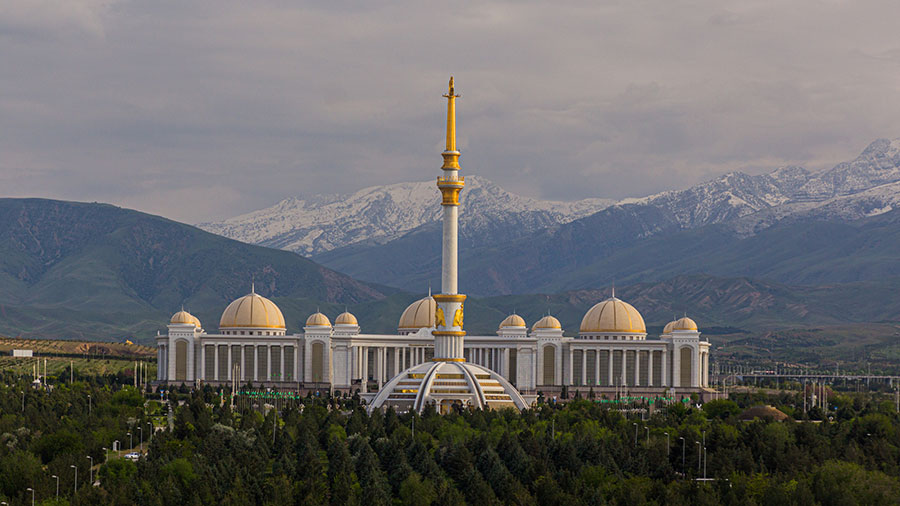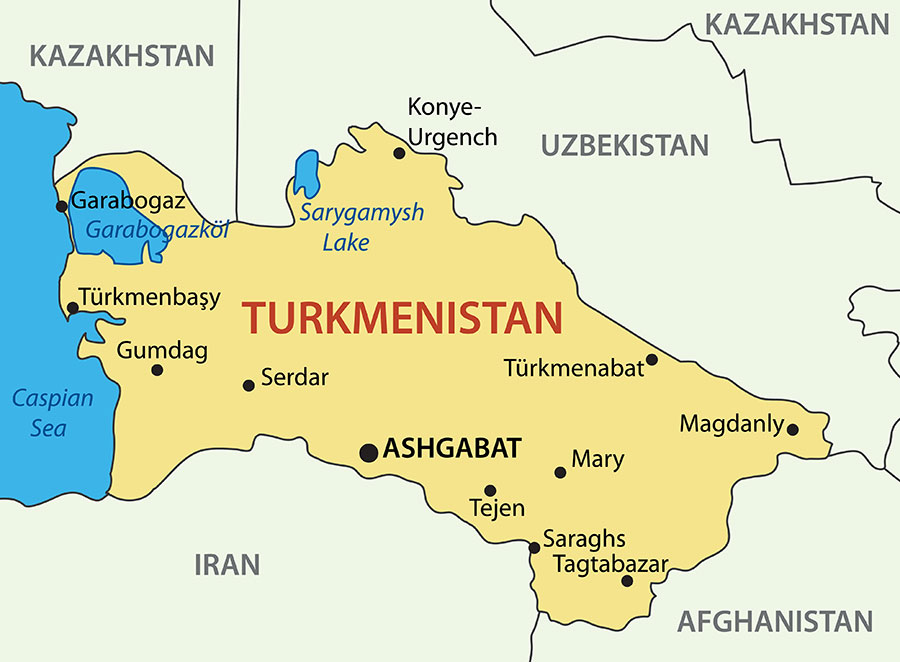Turkmenistan Fiscal Data Dropped By World Bank

The national library in Ashgabat, Turkmenistan’s capital city
The World Bank has refused to include official financial data provided by the Turkmenistan government in its bi-annual Global Economic Outlook report. The report is used as a benchmark for lenders and other financial institutions on an international basis as a tool to evaluate investment and economic prospects. The reason given was due to the Turkmen Government providing misleading economic data. In a statement the bank said “Due to lack of reliable data of adequate quality, the World Bank is currently not publishing economic output, income, or growth data for Turkmenistan. Turkmenistan is excluded from cross-country macroeconomic aggregates.”
This is the second consecutive time that the World Bank has dropped Turkmenistan from its bi-annual Global Economic Prospects report, and its damaging assessment of the quality of Turkmen data will reinforce Turkmenistan’s reputation as a difficult place to do business. The only other country excluded from the World Bank’s Global Economic Prospects report, published this month, is Venezuela.
Turkmenistan opposition groups have said the country is suffering an economic crisis, with inflation out of control and food queues lengthening. Official data posts a rosy picture, stating 2021 GDP growth will be about 5.9%, whereas unofficial estimates post expected growth at less than 1%.

Turkmenistan has also consistently denied it has had any cases of Covid-19, despite WHO officials stating this is extremely unlikely. All land borders with Afghanistan, Iran, Kazakhstan, and Uzbekistan have been indefinitely closed. Turkmenistan is an isolated country and is not a member of regional institutions such as the Eurasian Economic Union and Shanghai Cooperation Organisation. The country has one of the smallest populations of the Central Asian republics at about 6 million, yet it possesses the world’s fourth largest gas reserves, making it an important client state for China. Nominal annual per capita income is about US$7,800. The current President, Gurbanguly Malikgulyevich Berdymukhammedov, has been in power since 2007 having previously acted as Vice-President since 2001.
The moves by the World Bank are unlikely to have much impact on Turkmenistan as it attracts little external investment from the West and tends to be reliant on long-established regional political and business connections built on mutual trust when entering contracts, with most of these being closely Government monitored. However, it will face pressure from both China and Russia to try and get its act together as their respective state-owned investment institutions will wish to cover their own risks when considering finance and loans to Turkmenistan and will at least partially view the World Bank’s decision to discount Turkmenistan data as a signal that risk has increased.
Turkmenistan has loans outstanding to China of about US$8 billion, additional perceived risk could decrease the value of gas supplies Turkmenistan sells to China in repayment. Regional governments could also point to a lack of World Bank data as reasons to negotiate more favorable terms, putting some political relationships with the Turkmen Government under some stress. It will be interesting to note if Turkmen data is included back in the next World Bank Global Economic Outlook report due in January 2022.
Related Reading
- Turkmenistan Wants Fast Completion Of Turkmen-Afghan-Pakistan-India Gas Pipeline
- Russian Trade with Turkmenistan Hits Record Levels
About Us
Silk Road Briefing is written by Dezan Shira & Associates. The firm has 28 offices throughout Asia, and assists foreign investors into the region. For strategic advisory and business intelligence issues please contact the firm at silkroad@dezshira.com or visit www.dezshira.com





